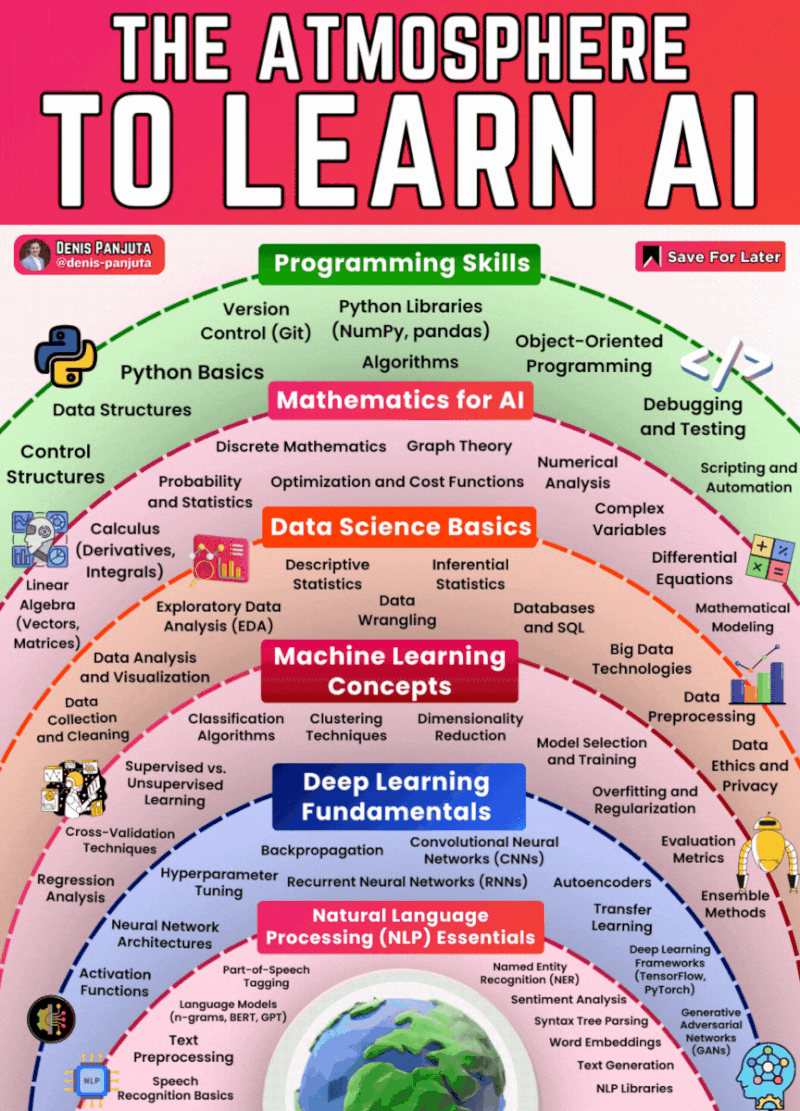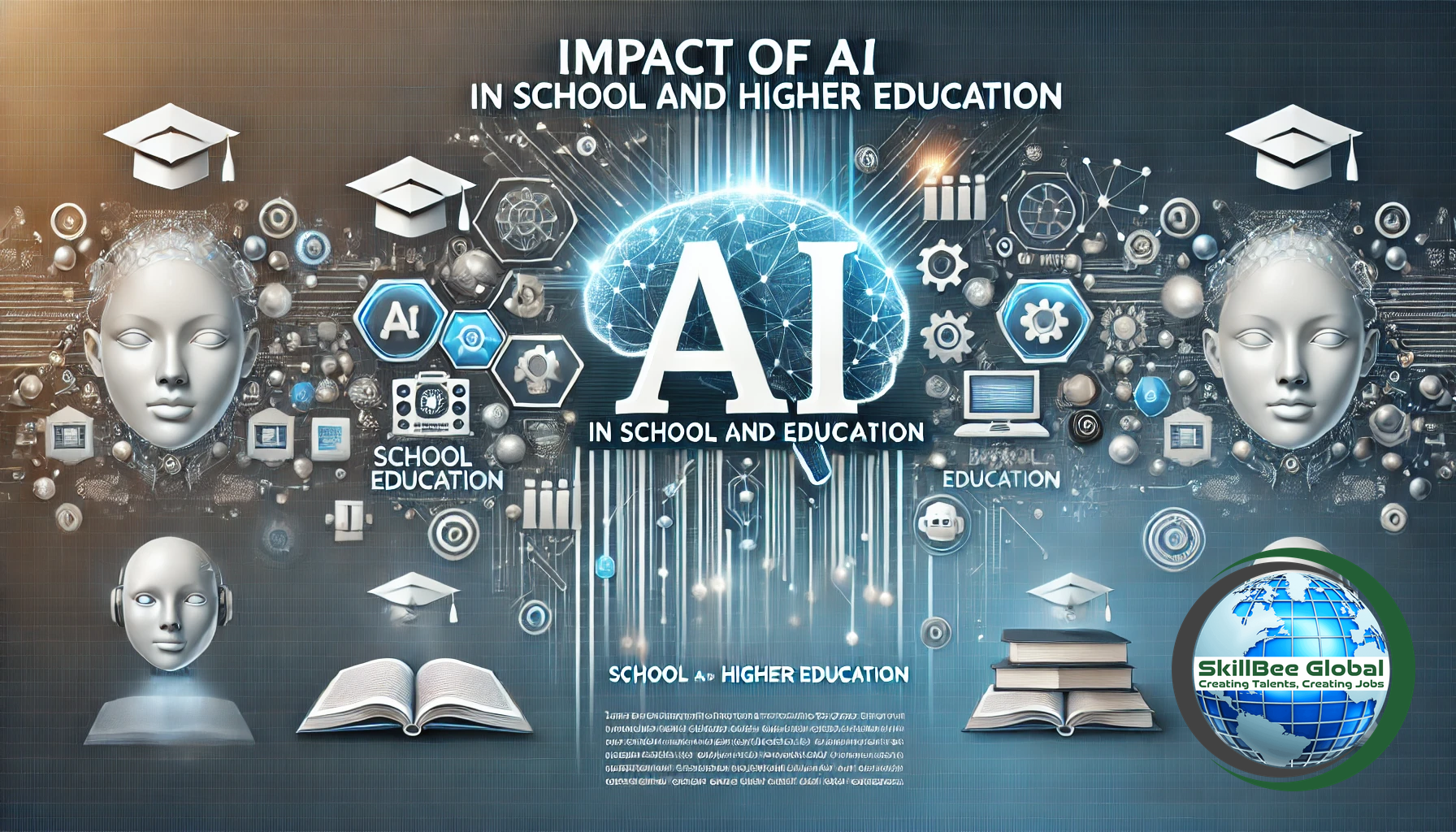
Artificial Intelligence (AI) is reshaping industries across the globe,making it one of the most valuable skills to learn today. However, mastering AI is a journey that involves building a strong foundation in programming, mathematics, data science, and machine learning before moving into advanced topics like deep learning and natural language processing (NLP). Here’s a breakdown of the stages to mastering AI, with recommended resources and courses at each level.
1. Programming Skills: Building a Strong Foundation
Key AreasRecommended Resources:
- Python for Beginners by Microsoft on YouTube
- Automate the Boring Stuff with Python (Free book and course)
- DataCamp’s Python Courses for hands-on projects and practice (DataCamp)
Mastering Python is crucial because it’s the primary language for AI. SkillBee offers Python programming courses designed for both beginners and those looking to advance their skills, ensuring you’re ready to tackle AI-specific tasks.
2. Mathematics for AI: Understanding the Math Behind the Magic
Key Areas: Calculus, Linear Algebra, Probability and Statistics, Discrete Mathematics, Graph Theory, Optimization, Numerical Analysis.
Recommended Resources:
- Essence of Linear Algebra by 3Blue1Brown on YouTube
- Probability and Statistics in Data Science by Khan Academy (Khan Academy)
- Coursera’s Mathematics for Machine Learning (Coursera)
Mathematics provides the foundation for understanding AI algorithms. SkillBee offers support for students who wish to strengthen their mathematical skills, preparing them to dive deep into AI concepts.
3. Data Science Basics: Making Sense of Data
Key Areas: Data Collection, Cleaning, Exploratory Data Analysis (EDA), Descriptive and Inferential Statistics, Data Wrangling, Data Visualization, SQL.
Recommended Resources:- Data Science Foundations by IBM on Coursera
- Exploratory Data Analysis in Python on DataCamp
- Introduction to Data Visualization by FreeCodeCamp (FreeCodeCamp)
In data science, you'll learn to manipulate and visualize data to gain insights. SkillBee’s data science courses include real-world projects that give hands-on experience in data handling, cleaning, and analysis.
4. Machine Learning Concepts: Learning from Data
Key Areas: Supervised and Unsupervised Learning, Classification, Clustering, Dimensionality Reduction, Cross-Validation, Hyperparameter Tuning, Evaluation Metrics.
Recommended Resources:
- Andrew Ng’s Machine Learning Course (Coursera)
- Hands-On Machine Learning with Scikit-Learn and TensorFlow (Book)
- Google’s Machine Learning Crash Course (Google AI)
Machine learning is the backbone of AI. SkillBee helps students understand and implement machine learning models, guiding them from theory to practice.
5. Deep Learning Fundamentals: Diving into Neural Networks
Key Areas: Neural Network Architectures, Backpropagation, Convolutional Neural Networks (CNNs), Recurrent Neural Networks (RNNs), Autoencoders, Transfer Learning.
Recommended Resources:
Deep learning is essential for tasks like image and speech recognition. Through SkillBee’s courses, students learn to build neural networks from scratch and explore cutting-edge models.
6. Natural Language Processing (NLP) Essentials: Understanding Human Language
Key Areas: Text Preprocessing, Part-of-Speech Tagging, Sentiment Analysis, Named Entity Recognition, Word Embeddings, NLP Libraries, Text Generation.
Recommended Resources:
- Natural Language Processing with Python (Book)
- Transformers for NLP by Hugging Face (Course)
- Coursera’s NLP Specialization (Coursera)
NLP enables machines to interpret human language. SkillBee offers NLP modules and projects that teach students how to work with language data, making them proficient in using AI to understand and generate text.
Beyond the Basics: Mastering AI Applications and Ethics
As you progress through these stages, it’s also crucial to understand the ethical implications of AI. Data ethics, privacy, and fairness are integral to responsible AI development. SkillBee emphasizes ethical AI in its courses, preparing students to be mindful and responsible AI practitioners.
Get Started with SkillBee’s AI Pathway
SkillBee’s AI pathway is designed to take students through these stages with structured courses, real-world projects, and expert mentorship. From foundational programming to advanced AI concepts, SkillBee ensures every learner has the support they need to master AI.
Conclusion
Mastering AI is a challenging but rewarding journey. By following this structured pathway and leveraging SkillBee’s resources, students and professionals can equip themselves with the skills necessary to excel in this field. Whether you’re a beginner or looking to advance, SkillBee is committed to guiding you every step of the way.
Comments (0)
Categories
Recent posts


Upskilling Employees -Top 10 Benefits ...
8 Aug 2024
Projected Hiring Trends in 2025 Indian ...
11 Mar 2025
The Importance of Skill Education: A ...
8 Aug 2024



